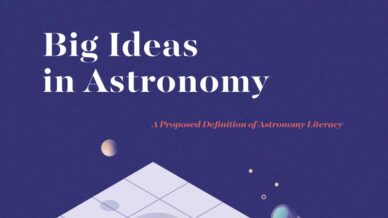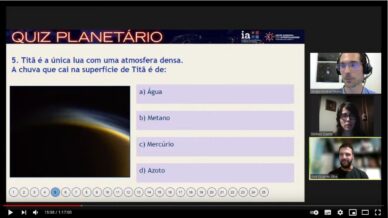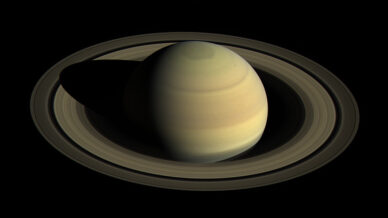
Stars and planets off the rails, or the odd story of distant worlds
Planets orbit stars, and stars spin, but are these two movements always aligned? Details like this are hidden in the light of the stars, and help astrophysicists to tell the story of distant worlds, writes Charlotte Gehan.
Read more

Eleven astronomy big ideas
Eleven ideas make all there is, and are one click away. On a single website, there’s everything you need to know about Astronomy and the Universe, in direct and everyday language, and several idioms.
Read more

How to forge the most dazzling furnaces of the Milky Way
Let’s imagine several tens of Suns packed in a single star. The final tremendous explosion of such a huge star is felt a long way across the galaxy. Luckily, stars like this are rare, and the reason lies at their birthplace.
Read more

Massive stars’ formation paradigm
This infographic represents the paradigm of star formation based on the idea of matter flowing down filaments in nebulae.
Read more

Planetary quiz: There’s no other home like Earth
There’s nothing better than to discover distant and inhospitable places for us to value something very rare: our own blue planet. Test what you know about some bizarre worlds in the Solar System and beyond, in a quiz conducted by IA young researchers.
Read more

Space climate: Storm in orbit
The Sun, that quiet disc in the blue sky, is sometimes the source of extreme events that menace our highly technological society. IA researchers answer questions in a live session dedicated to space climate.
Read more

The quest for rings that might dethrone Saturn
Dust, rocks, ices. They form the impressive rings of magnificent Saturn, but the “Lord of the Rings” is not alone. Found in humbler locations and sizes in the Solar System, rings might also exist around worlds orbiting other stars. But how are we going to know?
Read more

The Universe in a box
To uncover the history of everything – the whole Universe – but also to anticipate its future, from the origins to the present, we need colossal supercomputers, available at national and European level, explains José Correia, of IA, in SAPO TEK.
Read more

